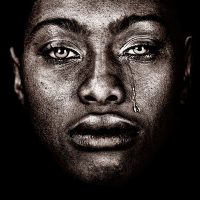Pain, Suffering And Emotional Loss In Wrongful Death Cases

In almost every wrongful death case, there is a loss of economic support. The financial support that a parent or relative would have provided to us during his or her lifetime is a loss that survivors can be compensated for.
Not Just Money
But wrongful death is about way more than money. It’s about the emotional loss of a loved one; the pain and emptiness that comes not just from losing a family member, but losing him or her because of the carelessness of someone else and the feeling that the death didn’t have to have happened.
That’s why emotional damages are so important in wrongful death cases. And while you would think that any juror applying common sense could figure out that the loss of a loved one causes emotional trauma, the fact is that it is something that still has to be proven in court.
Easy and Difficult
The feelings that a victim has after the death of a loved one because of someone’s negligence are real and powerful—but at the same time, these kinds of damages aren’t readily available to a jury, the way, say, a medical bill would be, or the way lost wages can just be calculated with numbers.
Proving how the loss of a loved one feels, is both easy and difficult. It is easy because all it takes is the survivors, and people who loved the deceased, to tell the jury how the loss is affecting them. There is no expert or technical testimony needed.
At the same time, it is very difficult; family members will be asked to expose their deepest, saddest emotions, to relive the pain and the loss, sometimes repeatedly through the course of the litigation. And they will have to do so to strangers—the other side’s attorneys, or the jury.
Showing the Jury Your Pain
Loved ones need to really paint a picture for the jury, so that they see what life was like when the deceased was still alive.
That takes more than general testimony, like “I miss him,” or “I’m really sad.” Rather, it takes very specific recollections of shared experiences with the deceased, and a much deeper inspection of the depth of love or affection or bonding, between the deceased and the survivors.
Survivors should be encouraged to share with the jury, whatever coping methods that the survivors have used to try to deal with the loss of the loved one, even if those coping methods aren’t so healthy. Whether going to medical professionals, or whether succumbing to addictions (an unhealthy, but common reaction to grieving and loss), the jury needs to hear about the changes and coping methods that the survivors have undergone.
Records of Treatment
Medical records do help as well, and survivors are encouraged to get professional mental health attention. Not only will it document the pain and loss, but obviously, it will go a long way to helping survivors cope with the sense of loss.
Contact our Rhode Island injury lawyers at Robert E. Craven & Associates at 401-453-2700 today if a loved one has been killed because of the carelessness or negligence of someone else.
Source:
plaintiffmagazine.com/recent-issues/item/getting-to-the-heart-of-non-economic-damages-in-wrongful-death-cases
